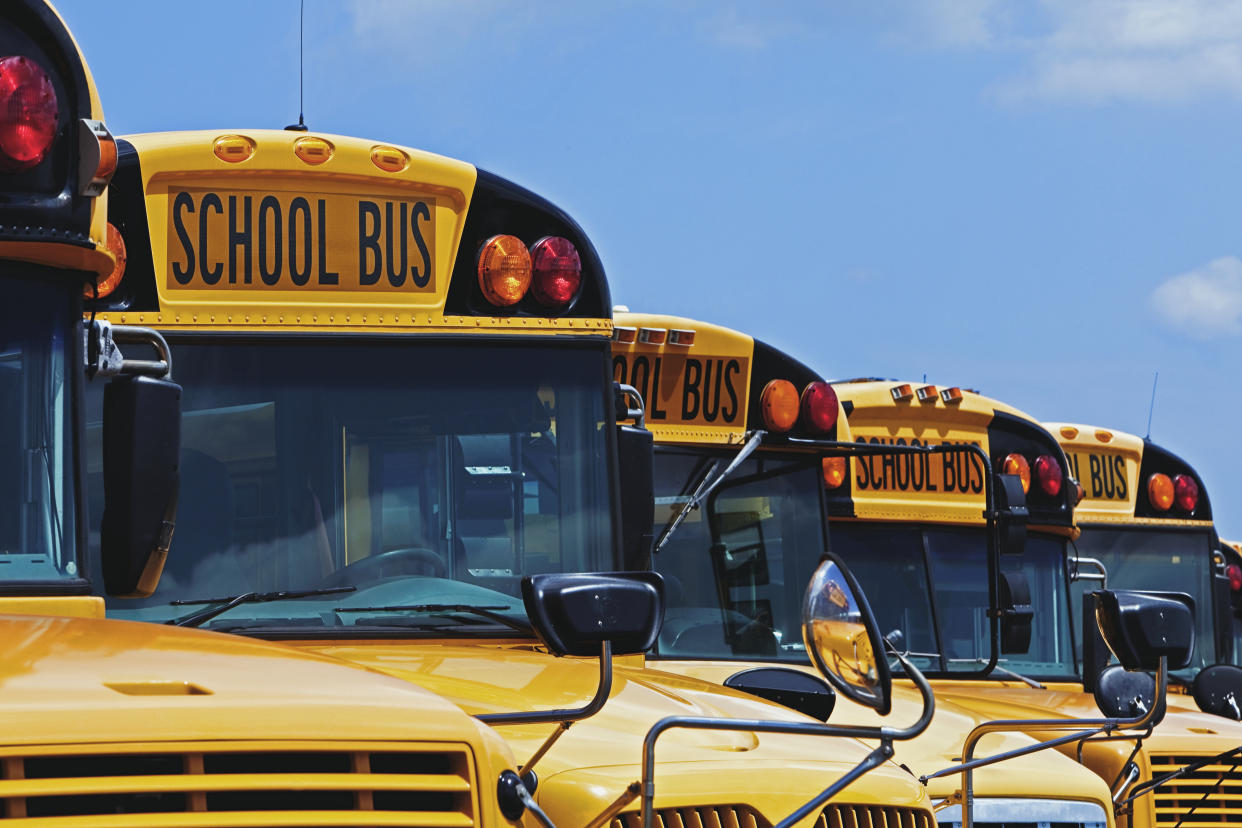School districts are using buses to provide Wi-Fi to students during quarantine

With in-school lessons no longer an option, several schools around the country have been working to provide internet access to students during quarantine.
The abrupt school closures have sent countless students and parents for a loop and with students finishing their school years online, many lack online access to complete their assignments, so school districts, libraries, transportation agencies and more have been finding ways to provide Wi-Fi.
In April, several school districts began deploying school buses equipped with Wi-Fi connections, creating hotspots that students located nearby can access on their devices. In Carbondale, Ill. and Dayton, Ohio, the buses travel to several city neighborhoods and intersections a few days a week. Dayton Public Schools also announced in a statement that they would be providing a limited number of Chromebooks to students in need.
In Texas, the Austin Independent School District (AISD) received a grant from Kajeet, a company working to provide student’s safe access to technology, and their Smartbus Wi-Fi Grant, which, according to a statement, awarded the district over $600,000 to equip their fleet of 534 school buses with Wi-Fi access.
“As we prepare for the possibility of extended school closures, we know that an internet connection is a lifeline and a learning link for our students,” Kevin Schwartz, chief executive officer for AISD, said in the statement. “Austin ISD will be deploying many of our 500+ Kajeet Wi-Fi/internet-enabled school buses to locations around our school district so that students can connect using our district Chromebooks.”
The statement would explain further that the technology used on the buses to connect students would also track “utilization rates, improvements to homework completion rates, student satisfaction, driver satisfaction and reduction in disciplinary incidents” to review during the upcoming school year.
Pierce County Transit in Lakewood, Wash., has also decided to bring access to students via buses that provide Wi-Fi hotspots. “Students and their caregivers will park near the bus and connect to the bus’s Wi-Fi to interact with teachers, conduct assignment research, upload or download assignments or conduct other types of schoolwork,” a press release stated.
Harris County Public Library in Houston will also provide Wi-Fi access when students and families park near their libraries.
Jessica Mayorga Castillo, the vice president of marketing and communications for the education advocacy group Stand for Children, tells Yahoo Life that not having access to the internet is far too common, as 9.16 million students are unconnected across the country.
“As we see school buildings close [throughout] so much of the nation, the only way students can continue learning and continue connecting [to] their education is through online learning,” Castillo says. “And we’re seeing so much of a disconnect, especially among students who don’t have access to broadband at home and that may be because of the conditions that they live in — parents not being able to afford it, or some rural areas, we’re seeing that some of the towers don’t exist…”
She adds, “and how are they supposed to learn if they can’t get online to receive instruction or if they can’t get online to do research or find information or do homework — that’s a challenge.”
It is evident that the efforts being made in several cities throughout the nation are needed more than ever as countless students have had much-needed resources taken from them due to the coronavirus. Castillo also notes that while steps have been taken to provide connectivity for some, what is most important is providing access to students everywhere. She explains that the Emergency Educational Connections Act, which is currently in the House, would provide funding to ensure all students are given devices and internet to help them keep up with their assignments.
For the latest coronavirus news and updates, follow along at https://news.yahoo.com/coronavirus. According to experts, people over 60 and those who are immunocompromised continue to be the most at risk. If you have questions, please reference the CDC’s and WHO’s resource guides.
How to maintain your physical and mental health during the pandemic
Taking care of a loved one with COVID-19? Here’s how to stay healthy
Q&A with Dr. Kavita Patel: How to keep your family safe and maintain your mental health
Read more from Yahoo Life
Want daily lifestyle and wellness news delivered to your inbox? Sign up here for Yahoo Life’s newsletter.

